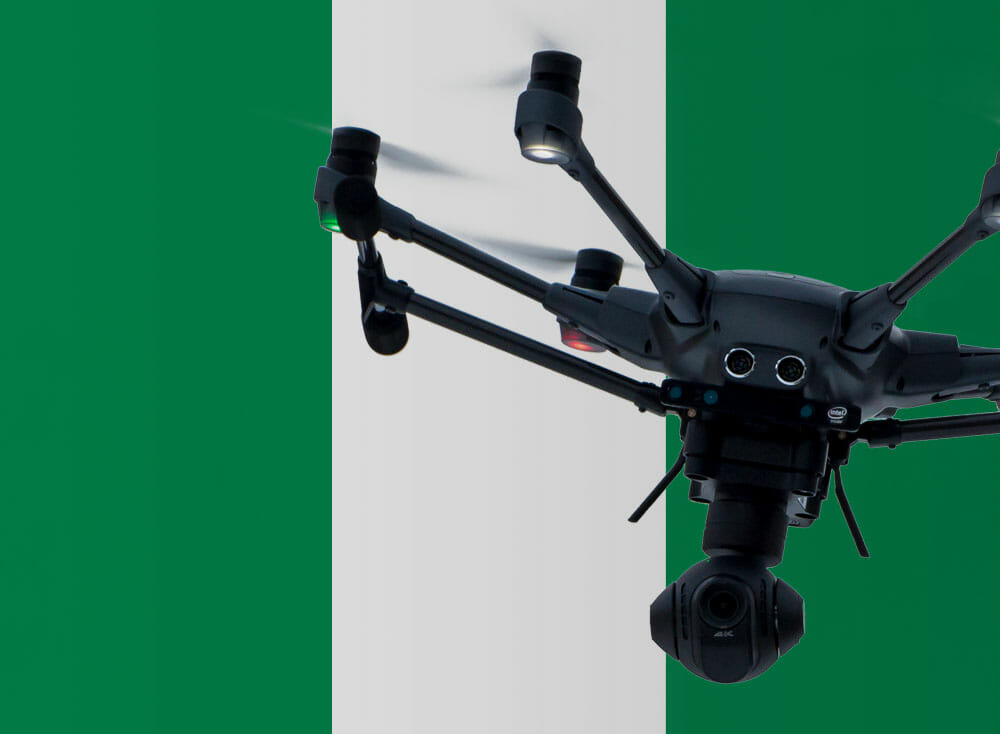Drones have rapidly become indispensable across various industries, from agriculture to logistics and healthcare. In Nigeria, their adoption has been met with a mix of enthusiasm and scepticism, hindered by regulatory hurdles, financial constraints and deep-seated cultural resistance.
The history of drone usage in Nigeria dates back to the early 2010s, when unmanned aerial vehicles (UAVs) were primarily deployed for military surveillance. Gradually, private enterprises began exploring their commercial potential.
In 2016, the Nigerian Civil Aviation Authority (NCAA) introduced regulations requiring operators to obtain licenses, imposing stringent controls. While essential for safety, the regulatory process proved cumbersome, deterring many would-be adopters.
Yet, in rural areas, drones are often met with suspicion. A hovering UAV may evoke fear, fascination, or even superstition. “Na juju! This thing dey monitor us for bad thing,” exclaimed an elderly farmer in Gwagwalada, Federal Capital Territory, upon spotting a drone surveying a cassava farm. Such reactions reflect the deep-rooted cultural narratives surrounding unexplained phenomena.
“Many rural communities equate drones with witchcraft or government surveillance, leading to resistance,” says Dr. Peter Ogbuehi, a sociologist at the University of Lagos. “Overcoming this challenge requires grassroots education and public demonstrations of the technology’s benefits.”
Beyond superstition, cost remains a significant barrier. A decade ago, acquiring a professional-grade drone could set a business back by $5,000—well beyond the reach of most Nigerian enterprises.
However, technological advancements and increased competition have driven prices down. Today, high-quality drones are available for as little as $1,000, with even cheaper models suited for basic applications.
“We’ve seen a significant drop in drone prices, which is a game-changer for industries like real estate and agriculture,” says Yemi Adedeji of Ariel Robotix, one of Nigeria’s leading drone firms.
Specialising in aerial surveys, agricultural mapping and real estate photography, the company seeks to demystify drone technology. “We conduct workshops, offer affordable rentals, and provide training programs to make UAVs accessible to all,” he adds.
Real estate firms have been among the earliest adopters. Companies like Bilaad Realty use drones to capture aerial footage of properties, enhancing client engagement.
“Clients can now see every corner of a property without stepping foot on-site. It saves time and offers a better perspective, especially for our diaspora clients,” says Davidson Bienose, Bilaad Realty’s brand management producer.
In agriculture, drones are transforming farm management. In Kaduna, agribusinesses employ UAVs to monitor crops, manage irrigation, and detect pest infestations, reducing waste and boosting yields.
“Drones help us identify problem areas quickly, improving efficiency,” says a local farm cooperative leader.
Healthcare, too, is benefitting. In remote regions with poor infrastructure, drones deliver essential medicines and vaccines. During the COVID-19 pandemic, UAVs played a crucial role in transporting vaccines to otherwise inaccessible areas, ensuring broader immunisation coverage.
Despite these advances, significant obstacles remain. Superstition and fear persist, particularly in rural communities. Public education campaigns will be essential to fostering acceptance. Regulatory bottlenecks also stymie progress.
“The process for getting a drone license in Nigeria is cumbersome,” laments Adedeji. “We need a more streamlined system to encourage more people to explore this technology.”
Yet optimism prevails. As costs decline and awareness grows, drones are set to become as ubiquitous in Nigeria as Jollof rice. “The sky is no longer the limit,” says Adedeji. “It’s just the beginning.”
Tunde Ajayi, a young entrepreneur in Lagos, recently integrated drones into his logistics business. Initially sceptical, he was won over by their efficiency. “The initial investment was high, and the licensing process was frustrating. But in the end, it was worth it.”
The full potential of drones in Nigeria will only be realised if the government, private sector and civil society step up. Education campaigns must dispel myths and highlight tangible benefits, particularly in underserved areas.
Regulatory frameworks should encourage adoption without compromising safety. Meanwhile, companies like Ariel Robotix must continue driving innovation and accessibility.
Drones are not mere novelties; they are catalysts for transformation. With the right policies and attitudes, they could play a pivotal role in the country’s economic and technological advancement.
Drones in Nigeria have rapidly expanded beyond military use to become essential tools in industries like agriculture, logistics, real estate, and healthcare. Despite regulatory hurdles and cultural resistance, Nigeria is Africa's third-largest market for drones. Regulatory constraints, high initial costs, and cultural superstitions have been major barriers. However, the cost of drones has decreased significantly, making them more accessible. Companies like Ariel Robotix are working to demystify UAV technology through workshops and training.
Drones offer numerous benefits across sectors. In real estate, they provide comprehensive property views, enhancing client engagement. In agriculture, they improve efficiency by monitoring crops and managing irrigation. In healthcare, drones have facilitated the delivery of medicines and vaccines in remote regions, notably during the COVID-19 pandemic. Public education campaigns are essential to overcoming cultural resistance, and regulatory processes need streamlining to encourage greater adoption.
The continued reduction in drone costs and increasing public awareness promise a bright future for drone technology in Nigeria. Entrepreneurs like Tunde Ajayi are beginning to see the value in integrating drones into their businesses, signaling a broader acceptance of the technology. For drones to reach their full potential in Nigeria, coordinated efforts from the government, private sector, and civil society are crucial. Drones stand as crucial catalysts for Nigeria's economic and technological advancement.






